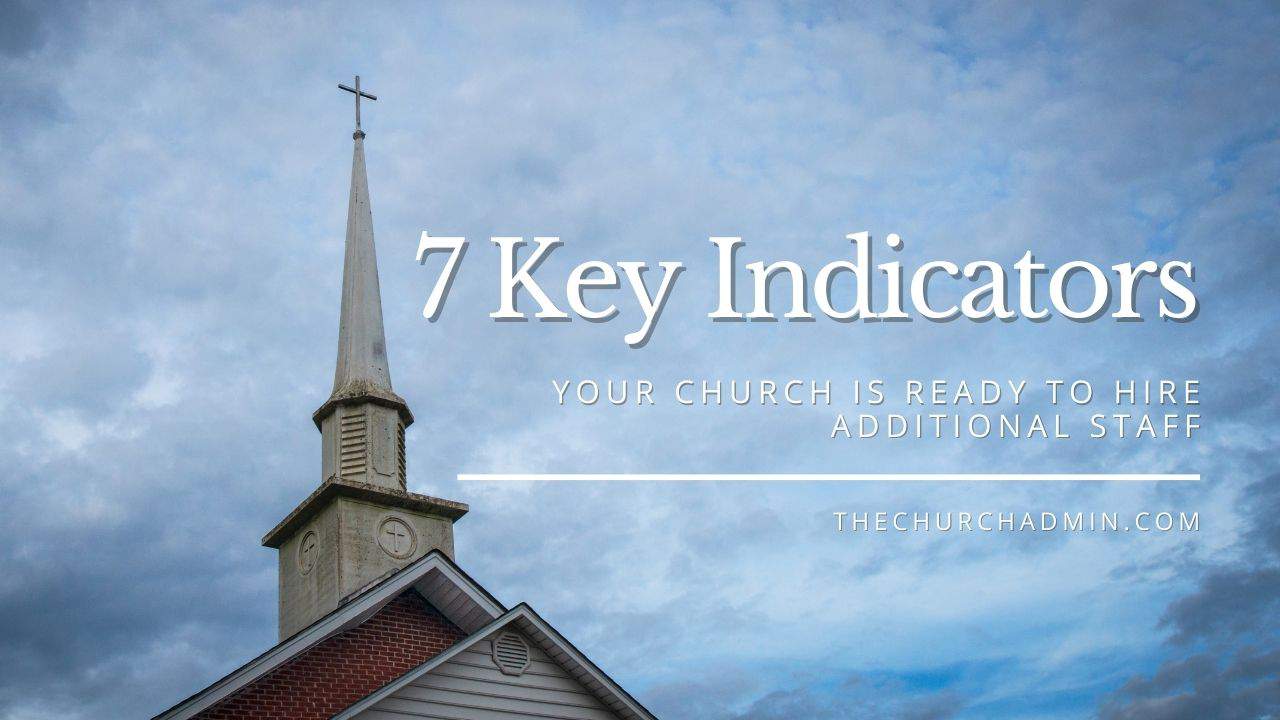Every church reaches a point where the needs of the congregation and the community exceed what the current staff and volunteers can handle. This pivotal moment requires careful consideration and discernment, as the decision to hire additional staff is not just a logistical one; it’s a spiritual one. It’s about stewarding your resources wisely, but also about being obedient to God’s calling for your church. In my years of service, I’ve seen firsthand the signs indicating it’s time to expand your team. Let’s delve into these signs and explore how they can guide your church toward making a God-honoring decision.
Main Thoughts and Ideas
Growth Beyond Volunteer Capacity
Volunteers are the backbone of any church. However, there comes a time when the workload outpaces the capacity of even the most dedicated volunteer team. This imbalance often leads to burnout and can compromise the quality of your ministry. When you notice your volunteers stretched thin, it might be time to consider hiring staff to alleviate the pressure and ensure the sustainability of your services.
Specialized Ministry Needs
As your church grows, you may identify the need for roles that require specific professional skills, such as a dedicated youth pastor, a worship leader, or a technical director for media and live productions. These specialized ministries often require a level of expertise and commitment that goes beyond what volunteers can provide.
Administrative Overload
When pastors and ministry leaders find themselves bogged down by administrative duties, it’s a clear sign that additional help is needed. Hiring administrative staff can free up pastoral staff to focus more on spiritual leadership, pastoral care, and preaching—the areas where they are needed most.
Financial Stability and Sustainability
Before making any hiring decisions, it’s crucial to assess your church’s financial health. Hiring staff is a significant commitment, and it’s essential to ensure that your church is in a stable financial position to support new roles without jeopardizing its financial sustainability.
Community and Congregation Feedback
Listening to your congregation and community can provide valuable insights into the needs that are not being met. Feedback requesting more programs or better support might indicate the need for additional staff to develop and manage these initiatives effectively.
Vision Expansion
When the vision God has given your church cannot be fulfilled with your current team size, it may be time to hire. Expanding your staff can provide the additional hands and hearts needed to pursue new directions and reach more people with the Gospel.
Questions You Might Ask About Church Staffing
- How do we discern if growth justifies new hires? Discerning whether growth justifies new hires involves a combination of quantitative and qualitative assessments. Look at your church’s attendance trends, engagement levels in church activities, and volunteer involvement. If you see consistent growth in these areas or notice an increased demand for ministry services that your current team cannot meet, it might be time to consider hiring. Additionally, pray for guidance and seek counsel from church leaders and members to ensure that the decision aligns with God’s direction for your church.
- What are clear signs our volunteers are overwhelmed? Clear signs include volunteers expressing feelings of burnout, a noticeable decline in the quality or consistency of ministry activities, or an increase in unmet needs within the congregation. When volunteers start stepping back from commitments they once managed with enthusiasm, or when you observe a significant drop in volunteer retention rates, it’s a strong indication that your team is stretched too thin.
- How do we identify which specialized ministry roles to fill first? Identifying which roles to fill first depends on your church’s strategic goals, the needs of your congregation, and the gaps in your current ministry offerings. Start by evaluating which areas are most critical to your church’s mission and vision. For instance, if reaching young families is a priority, hiring a youth pastor or children’s ministry director might be the first step. Assessing where the greatest needs and opportunities lie will help prioritize which roles to fill.
- What financial health indicators should we consider before hiring? Key financial health indicators include a stable or growing income stream, the ability to meet current financial obligations without strain, and having reserves set aside for emergencies. Analyze your church’s budget, focusing on revenue trends, expenses, and giving patterns. Ensure there’s enough financial cushion to support additional staff, considering not just salary, but also benefits, taxes, and any necessary training or resources they’ll need.
- How can we ensure a smooth transition for our church culture when bringing in new staff? Ensuring a smooth transition involves clear communication, intentional integration, and community building. Share the vision and rationale behind the new hire with your congregation, highlighting how they will contribute to the church’s mission. Provide opportunities for the congregation to meet and welcome new staff members. Finally, foster an environment of openness and collaboration, encouraging feedback and dialogue throughout the transition process.
- What strategies can maintain volunteer engagement amidst staff expansion? To maintain volunteer engagement, clearly communicate the value of volunteer contributions and how they complement the work of paid staff. Offer training and development opportunities for volunteers to grow in their roles. Create pathways for volunteers to provide input into ministry decisions and ensure there are meaningful roles for volunteers that leverage their skills and passions, alongside the work of paid staff.
- What qualities should we prioritize in potential staff members to align with our church’s mission? Prioritize qualities such as a heart for ministry, alignment with your church’s vision and values, strong interpersonal skills, and the specific professional competencies needed for the role. Look for individuals who demonstrate a commitment to spiritual growth, the ability to work well within a team, and a passion for serving the community.
- How can new hires help us better serve our expanding community? New hires can bring specialized skills, fresh perspectives, and additional capacity to meet the growing needs of your community. They can spearhead new ministries, enhance existing programs, and provide pastoral care and leadership that broaden your church’s outreach. By addressing specific needs and opportunities within the community, new staff can help your church become more effective in its mission.
- What are the potential risks of expanding our staff too quickly, and how can we mitigate them? Expanding staff too quickly can strain financial resources, disrupt church culture, and create management challenges. To mitigate these risks, adopt a strategic approach to hiring that includes thorough planning, budgeting, and an assessment of long-term sustainability. Engage in transparent communication with your congregation about the reasons for and benefits of new hires. Ensure there is a clear integration plan for new staff that includes mentorship and regular evaluations to support their success and alignment with the church’s mission.
Actionable Steps and Biblical References
Prayer and Discernment
Begin with prayer, seeking God’s wisdom and direction in your decision-making process. The early church’s example in Acts 6:1-7, where the apostles appointed deacons to ensure the equitable distribution of resources, illustrates the importance of discerning God’s will in leadership decisions.
Community Consultation
Engage with your congregation through surveys, town hall meetings, or small group discussions to understand their needs and perceptions about church staffing and ministry effectiveness.
Financial Review
Conduct a detailed financial analysis to evaluate your church’s ability to sustain additional staff. This might include reviewing your budget, forecasting future giving, and considering fundraising efforts.
Define Roles Clearly
Before hiring, clearly define the roles and responsibilities you need to fill. This clarity will help attract the right candidates and ensure they can integrate seamlessly into your ministry.
Training and Integration
Develop a comprehensive plan for onboarding new staff, including training on your church’s vision, values, and operational procedures. This will help new hires understand their role within the larger mission of the church.
Conclusion
Deciding to hire additional church staff is a significant step that requires careful thought, prayerful consideration, and strategic planning. By recognizing the signs that it’s time to expand your team, you can ensure that your church continues to grow and thrive, meeting the needs of your congregation and community effectively. Remember, each step forward is a step taken in faith, trusting God to provide and guide as you steward the resources He’s entrusted to your care.





